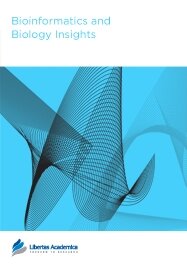

Publication Date: 07 Feb 2011
Type: Original Research
Journal: Bioinformatics and Biology Insights
Citation: Bioinformatics and Biology Insights 2011:5 41-58
doi: 10.4137/BBI.S6061

Genes encoding proteins that contain the universal stress protein (USP) domain are known to provide bacteria, archaea, fungi, protozoa, and plants with the ability to respond to a plethora of environmental stresses. Specifically in plants, drought tolerance is a desirable phenotype. However, limited focused and organized functional genomic datasets exist on drought-responsive plant USP genes to facilitate their characterization. The overall objective of the investigation was to identify diverse plant universal stress proteins and Expressed Sequence Tags (ESTs) responsive to water-deficit stress. We hypothesize that cross-database mining of functional annotations in protein and gene transcript bioinformatics resources would help identify candidate drought-responsive universal stress proteins and transcripts from multiple plant species. Our bioinformatics approach retrieved, mined and integrated comprehensive functional annotation data on 511 protein and 1561 ESTs sequences from 161 viridiplantae taxa. A total of 32 drought-responsive ESTs from 7 plant genera Glycine, Hordeum, Manihot, Medicago, Oryza, Pinus and Triticum were identified. Two Arabidopsis USP genes At3g62550 and At3g53990 that encode ATP-binding motif were up-regulated in a drought microarray dataset. Further, a dataset of 80 simple sequence repeats (SSRs) linked to 20 singletons and 47 transcript assembles was constructed. Integrating the datasets on SSRs and drought-responsive ESTs identified three drought-responsive ESTs from bread wheat (BE604157), soybean (BM887317) and maritime pine (BX682209). The SSR sequence types were CAG, ATA and AT respectively. The datasets from cross-database mining provide organized resources for the characterization of USP genes as useful targets for engineering plant varieties tolerant to unfavorable environmental conditions.
PDF (2.18 MB PDF FORMAT)
RIS citation (ENDNOTE, REFERENCE MANAGER, PROCITE, REFWORKS)
Supplementary Files 1 (89.42 KB ZIP FORMAT)
BibTex citation (BIBDESK, LATEX)
XML
PMC HTML

Bioinformatics and Biology Insights fills a gap in current journals. Ever more often, bioinformatics and detailed analysis of data creates novel, unexpected insights. It is good to have a journal which focusses on exactly this aspect of bioinformatics research, putting the biology insights upfront with high respect for the different methods in bioinformatics.
Facebook Google+ Twitter
Pinterest Tumblr YouTube